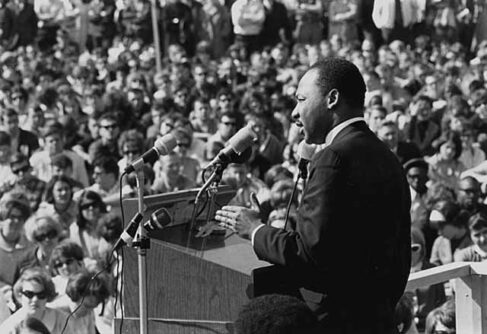The NFL is a tax-exempt nonprofit? That’s what many people might have been surprised to learn when reading this week’s news that federal legislation is being introduced to strip the NFL of its tax-exempt status if it doesn’t successfully pressure Washington Redskins owner Dan Snyder to change the Redskins name.
What? The NFL that puts on the Super Bowl extravaganza, wardrobe “malfunctions,” child abuse and assault allegations, and all? With clubs that rake in billions of dollars? That’s tax-exempt?
Yes, indeed, it is a tax-exempt nonprofit. So are the PGA and NHL.
It shouldn’t be so. And, I heartily agree with those who find the Redskins name offensive.
But this is wrong-headed legislation.
First of all, stripping the NFL of its tax-exempt status might impose no financial penalty—some suggest the NFL still wouldn’t pay any tax. But that’s not the point: clearly this legislation is aimed at a symbolic victory, not bringing in additional revenue to the federal coffers.
This legislation is wrong-headed because you don’t get people to change their minds by putting them in a legal vise grip; attitudes change slowly, upon the accumulation of experience and argument. I can’t imagine there would be a true satisfaction if the Redskins’ name were changed without Dan Snyder having a public change of mind on this question.
And, it’s also wrong-headed because legislation is supposed to be written to apply generally, not targeted at one particular group or person. It was sweetheart 1966 legislation aimed at promoting the merger of the National Football League and the American Football League that got “professional football leagues,” of which there would be exactly a single instance, added to the list of tax-exempt types of organizations.
This type of sweetheart deal contributes to Congress having such a bad name with many taxpayers. And, just as this sweetheart legislation shouldn’t have been written to give the NFL a tax exemption, there shouldn’t be hostile legislation that targets the tax-exempt status of the NFL, and the NFL alone, among professional sports leagues.
Instead, what we need is a general reconsideration of what types of organizations should qualify as tax-exempt.
In determining which organizations qualify as tax-exempt, U.S. law has taken its cue from an 1891 English case in which the Moravian Church challenged the denial of a tax exemption. In his decision, Lord Macnaghten set out what has turned out to be a lasting standard:
Charity in its legal sense comprises four principal divisions: Trusts for the relief of poverty; trusts for the advancement of education; trusts for the advancement of religion; and trusts for other purposes beneficial to the community.
Lord Macnaghten’s standard was a guide for U.S. law when the Tariff Act of 1894 first outlined what kinds of U.S. organizations would qualify as tax-exempt. Because of its common-sense clarity, especially in its final phrase “purposes beneficial to the community,” Lord Macnaghten’s standard has remained a guide for U.S. law and legal decisions to this day, even as U.S. legislators have added additional types of charities that qualify as tax-exempt, such as charities that aim to prevent cruelty to children and animals and ones that promote scientific discovery.
Organizations that serve “purposes beneficial to the community” includes the kind of organizations people think of as quite properly nonprofit charities: Doctors Without Borders, the Boy Scouts, the Salvation Army.
Only slightly more controversially, it includes many hospitals, although some argue that nonprofit hospitals don’t typically care more for the indigent than for-profit hospitals and question whether so many hospitals should continue to enjoy nonprofit status. Indeed, Obamacare has led to changes in criteria for counting as a nonprofit hospital.
But the NFL? It just doesn’t meet Lord Macnaghten’s standard of serving a purpose “beneficial to the community.”
Maintaining the legitimacy of tax exemptions for nonprofits truly matters today—a time when the Administration would dearly love to cut back on the charitable deduction for individuals.
Yes, tax exemptions for nonprofits and charitable deductions for individuals are not the same—but they raise similar issues about whom should get a tax break for supporting a charitable or public purpose. The more tax exemptions for nonprofits seem like sweetheart deals rather than wise policy, the easier it will be to challenge the charitable deduction for individuals.
Although this Congress won’t be able to get it done, it would be terrific to clean house and revoke the tax-exempt status of professional sports leagues and other types of nonprofits that don’t meet Lord Macnaghten’s standard of “purposes beneficial to the community.” Were Congress able to do so, perhaps there were surer public support for tax exemptions for organizations that clearly do serve the community and for the individual charitable deduction.







Thank you for recognizing that tax exemption and the charitable deduction are not identical. You may, however, have left the impression that charitable donors to the NFL (are there any?) are eligible for the deduction. They are not. The 501(c)(4), (c)(5), and (c)(6) organizations have provoked considerable discussion lately, but none of them benefit from the charitable deduction which applies only to gifts made to Section 501(c)(3) entities. We enjoy a robust and independent civil society based on the broad IRS description of (c)(3) exempt purposes, which are “charitable, religious, educational, scientific, literary, testing for public safety, fostering national or international amateur sports competition, and preventing cruelty to children or animals.” Any suggestion that Congress begin to pick and choose among (c)(3) exempt purposes poses a danger to our tradition of private philanthropy and should be quite separate from a conversation about the NFL.